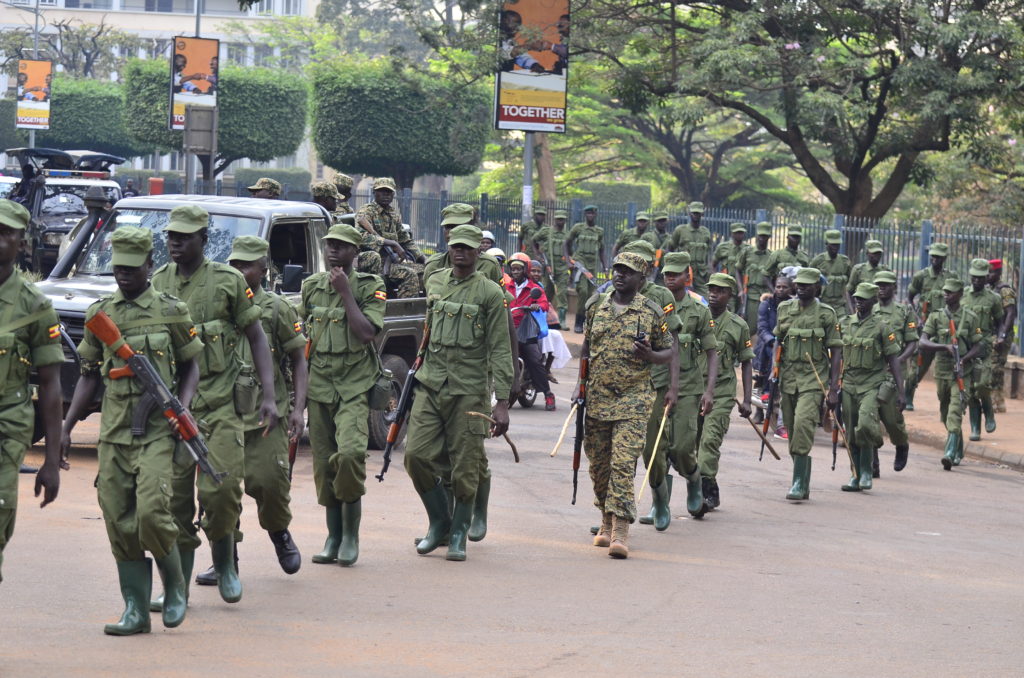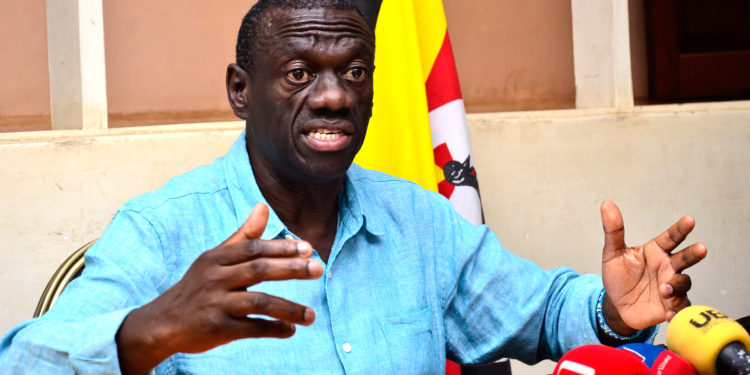BY: ROBERT MADOI
For someone who runs everything down to the smallest details, Kizza Besigye’s conceiving of the novel coronavirus has a sense that is indispensable to his training as a physician. Because Covid-19 exploits ambiguity and thrives on ambivalence, clarity is needed all the time. Dr. Besigye’s comprehension of this is, at least as good as could have been expected from him. “Covid-19,” he said, during the unveiling of Kampala city Lord Mayor Erias Lukwago as an FDC member, “is real. It is there.”
The scale of the damage caused by the coronavirus pandemic continues to be enormous. The Great Lockdown — despite reducing cases per capita — has ended up triggering recessions. Uganda is one of a string of developing countries that received money from its development partners to shore things up. While announcing that he will not be on the ballot for the 2021 poll, Besigye reiterated a claim that Covid-19 relief funds have been bungled. He said: “The regime is finished. What they are using to pay soldiers, they borrowed it from Covid-19. They are using Covid money to win support.”
To fact-check this claim, it ought to be put in context. Soldiers have been deployed to enforce Covid-19 restrictive measures. They therefore should not be projected as awkward beneficiaries of the Covid-19 kitty. But Besigye’s claim seems to suggest that servicemen who are not directly or indirectly enforcing Covid-19 restrictive measures have put their fingers in the cookie jar. Such a claim squats on shaky ground.

On April 8, Parliament passed a Shs. 932.765 billion supplementary budget. The subvention is part of a Shs. 2.4 trillion loan taken out from Stanbic Bank Uganda Limited and Trade Development Bank. The loan request was given the green light by Parliament during the second working week of February. This came hot on the heels of revelations by government that it was buckling under the weight of poor revenue collections and additional expenditure pressures. Shs. 400 billion of the loan was classified expenditure under the Ministry of Defence’s vote.
Vox Populi was unable to find evidence to support Dr. Besigye’s claim that the government of Uganda is using money borrowed for Covid-19 to pay soldiers. He too did not adduce evidence to support his claim.
Our verdict : Claim made without evidence.
Another claim that Besigye made was that a number of people have self-immolated to protested against economic hardship occasioned by the pandemic. He said: “Many people here in Kampala, I think about six people have burnt themselves to death. Many are burning themselves out of desperation.”
The claim is part-true, part-false. Covid-19 has left a trail of destruction, with statistics from the Ministry of Gender, Labour and Social Development conceding a grave problem. The statistics indicate that 2,727 people have either been made redundant, laid off, or had a salary cut in the last four months. The self-immolations to protest against economic hardship have popped up with alarming frequency, but they didn’t total anywhere near six in Kampala by the time Besigye made the claim. They were four (Hussein Walugembe, Edgar Kyamunywa, Andrew Mukiibi and Noah Buyinza). According to https://dictionary.cambridge.org, the word ‘many’ as used by Dr. Besigye means, “We use many to refer to a large number of something countable.” Whereas every life matters and is important, our verdict is that Dr. Besigye’s choice of the word ‘many’ and in the context in which he used it, was not backed by evidence although he was factually right that some Ugandans have ‘burnt themselves’.
Besigye also took swipe at “loud speakers of the regime who were predicting doom that FDC is finished” in the wake of his ratcheting up of pressure before the 2016 poll.
While recently announcing that he will not be on the ballot for the 2021 poll, Besigye asked rhetorically: “Is [FDC] weaker or stronger?” The audience roared that FDC is stronger.
So is FDC really stronger? The claim is largely accurate. FDC’s representation in parliament increased from 34 (23 direct and 11 women representatives) to 36 (29 direct and seven women representatives).
FDC did not only make incremental gains in parliament. Despite not capturing the seat of power, there was also a marked improvement in Besigye’s performance at the ballot. Nearly 3.6 million Ugandans threw their weight behind him, up from 2,064,963 in 2011. Besigye also prevailed in 14 (Soroti, Pader, Tororo, Mbale, Sironko, Lira, Gulu, Amuru, Ngora, Masaka, Kasese, Rukungiri, Wakiso and Kampala) out of 112 districts. In 2006, he only managed to win in four (Soroti, Kaberamaido, Serere and Kampala).
Our verdict is that Dr. Besigye and the FDC audience he addressed were factually correct on the party being stronger, at least going by the numbers above (as the yardstick).


